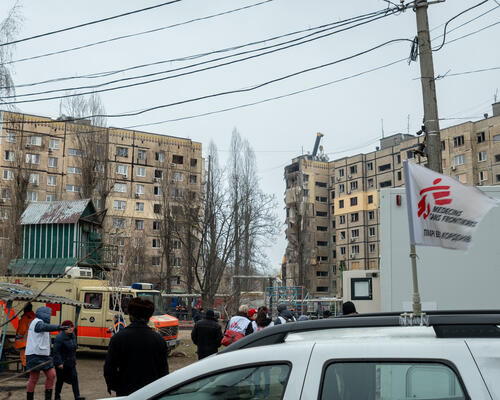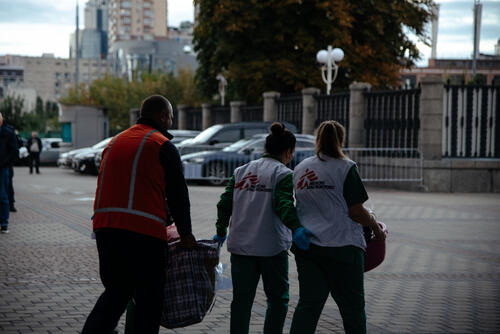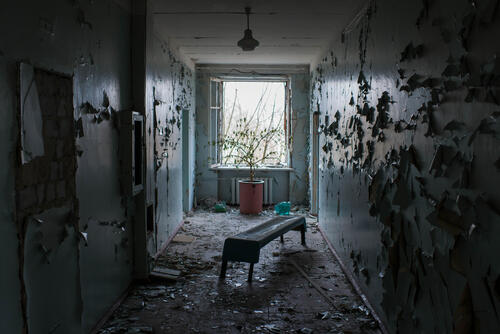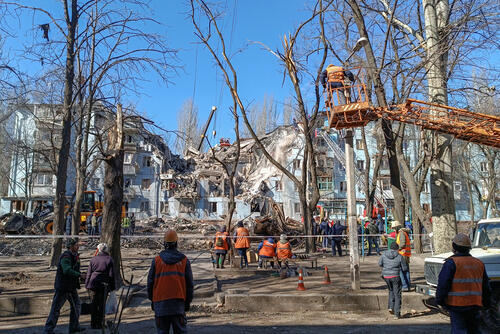In the three days since an attack on a residential building in central Dnipro, Dnipropetrovsk oblast (province), Ukraine, killed at least 40 people, teams from Médecins Sans Frontières (MSF) have been providing survivors with medical care, psychological first aid and essential relief items. In addition to those known to have died in the blast, 75 people were injured and around 30 people remain missing.
Immediately after the attack, residents were evacuated from the building. In the following hours, MSF ambulance teams provided on-the-spot treatment to people with minor injuries and transported those with more serious injuries to hospital.
Meanwhile people gathered in the street in the hope of receiving news of missing friends and relatives; many were in a state of visible distress.
When we first arrived, there were lots of people on the scene and extensive damage... A degree of panic was very noticeable on the faces of everyone around.Ivan Quentin, MSF field coordinator
“Among those who approached me for assistance was a woman whose relative had died as a result of a shock wave while walking down the street when the attack occurred,” says Yvhenia Kvyatkovska, an MSF psychologist. “The woman was crying. She told me her relative was only 15 years old. I could see she was in state of distress and panic, which is a natural reaction to what happened.”
“The situation is very tough,” says Ivan Quentin, MSF field coordinator. “When we first arrived, there were lots of people on the scene and extensive damage. First responders and excavators were carefully removing the debris. A degree of panic was very noticeable on the faces of everyone around.”
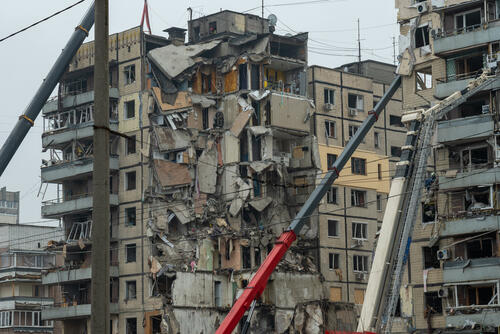
MSF brought in two full medical teams, including psychologists and health promoters, and set up two mobile clinics to provide patients with warmth and privacy. The medical team have been providing medical consultations and psychological first aid.
“We coordinated with the Ukrainian Red Cross to distribute the kits of relief items through their volunteers and use their tent to direct people to our mobile clinics,” says Quentin. “So far, we have conducted more than 100 medical consultations. Our mental health activities are ongoing. We will stay in place for as long as we are needed.”



